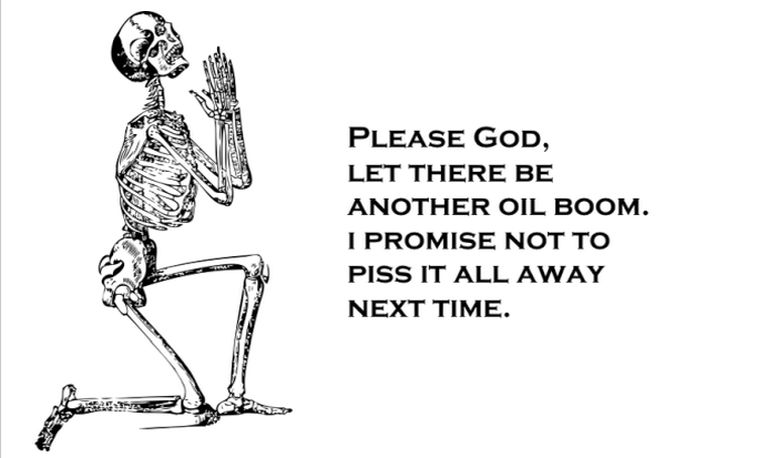After a few years of turmoil, Alberta faces a dangerously close election on May 29. The reversal of the deep hatred for the United Conservative Party (UCP) that gripped the province is astonishing. Replacing Premier Jason Kenney (the hated elitist) with Premier Danielle Smith (quietly, a former corporate lobbyist, but loudly, a reactionary right-populist) meant a second chance for the UCP. Two of Kenney’s elitist stooges, Environment Minister Sonya Savage and Finance Minister Travis Toews, are not seeking re-election. Toews attacked nurses’ wages and removed auto insurance rate caps, while Savage served the interests of fossil fuel capitalists. Shedding Kenney and his elitist ministers has helped refresh the party’s image and cleansed some of the bitter taste of its first term, and its new right-populist direction has brought back many supporters.
It would be a mistake to think Jason Kenney’s downfall was triggered by a movement from the left, the NDP, or from unions, despite some intense struggles against the government during the last years. The UCP majority government has been able to largely ignore external opponents and do as it wishes. In March 2021, Niitsítapi Water Protectors led a protest in downtown Calgary against new coal mining projects. A province-wide public outcry from Indigenous Peoples, rural and urban communities, and environmentalist groups forced the reinstatement of the 1976 Coal Policy, halted coal exploration on Category 2 lands, and led to the denial of the Grassy Mountain Coal Project. This demonstrates the power that a fearless class-struggle approach to defending the environment could have. The UCP also zig-zagged on many public safety measures during the height of the COVID pandemic, giving in to the demands of the far right.
In truth, it was the right wing of the UCP, now led by the far-right group Take Back Alberta (TBA), that replaced Kenney with Smith. Growing out of last year’s convoy blockade in Coutts, TBA has incredible momentum, claiming 25,000 – 30,000 members and expanding its control of UCP constituency associations throughout rural areas. Well organized, it now dominates the party’s governing board and has even alienated some of the more moderate members of the party. Danielle Smith is the perfect premier for the far-right political action committee, willing to spout whatever far-right nonsense is useful at any given moment and push through a “sovereignty” agenda. Take Back Alberta is gaining support in rural areas, an example of political polarization in motion. The false solutions offered by right populists like Smith are becoming attractive to a section of voters. But nothing in Smith’s “sovereignty” platform (replacing the RCMP with a provincial police force, replacing Revenue Canada with an Alberta tax collection agency, or pulling out of the Canadian Pension Plan to invest it with AIMCo) has any capability of addressing the crises of capitalism at the root of the issues that are making life harder — they will only make things worse.
UCP Buys Votes but Will Charge for Health Care
The province is flush with cash, ending the fiscal year with a whopping $10 billion surplus based on the recent boom in oil prices. Now the UCP is flashing the money to grab some votes through direct cash payments to families and promising investment in health care and education after cutting both — and illegally spending millions on advertising it. But they still plan to leave $2.4 billion untouched in the next budget. There is no reinvestment in post-secondary funding after three years of painful cuts, meaning students face more tuition increases. The UCP will continue privatizing parts of the health care system, including lab services and surgical facilities, ensuring that more public money ends up in private hands. Smith has declared that she plans to establish Health Spending Accounts and co-payments to get people paying directly for health care. Many voters are undecided, and uninspired by either party. Yet enough Albertans are back in love with the UCP and its plan to “fight Ottawa,” despite the cuts and scandals, that it could, unbelievably, win again.
What is the appeal of the UCP despite its recent record? The UCP is successful in rural areas and parts of Calgary because these voters believe that the party best supports rural communities and the province’s economy. Alberta’s economy produces the most money in Western Canada (the biggest provincial GDP) and is heavily reliant on fossil fuels, which account for over 20 percent. Many rural communities depend on only one or a handful of employers in extractive industries, and when the resources are exhausted, so are the jobs. Automation is also reducing the number of jobs.
There is a widespread feeling amongst rural dwellers that they produce a lot of the province’s wealth but receive few services in return. To win these districts, the NDP needs a bold campaign against unemployment and inflation that promises to dramatically improve access to public services, along with public ownership of extractive industries with well-paying union jobs. A transition to a green economy would mean many more opportunities for new jobs.
NDP Missed a Golden Opportunity
The political consciousness of the mainstream left is on the wrong track, too focused on trying to squeeze victory from the numerous petty scandals over controversial or absurd statements Smith has made, and her controversial phone call and relationship with far-right street preacher Artur Pawlowski. Although these scandals may negatively impact her popularity, the NDP’s focus on these is a roadblock to effective struggle. The NDP has been unwilling to stray from the logic of capitalism and electoralism, unwilling to use any controversy to lead a struggle against Smith’s corruption or to fight for social gains. They are not campaigning on a bold program, not even a minimum wage increase.
Recently, the NDP released their “public safety plan,” which they surely believe will give them some conservative cross-appeal. The media has been stoking fears about public safety and “law and order” after recent violent attacks, including attacks taking place on public transit. The NDP promises to hire 150 officers and 150 social workers (of various disciplines) to work with the police in integrated teams. This would cost $40 million and would be paid for by giving municipalities back $32 million in fine-related revenue that was redirected to the province. There are other vague allusions to minor police reforms, plans to keep the RCMP, invest $10 million in Rural Crime Reduction Units, and hire more probation officers. The NDP claim they will improve public safety and address the root causes of social disorder by increasing police funding and making them work as a team with community and social service providers. They correctly identify UCP cuts to all sorts of services as having contributed to rising rates of poverty, homelessness, addictions, and crime. But why doesn’t the NDP promise to reverse the UCP’s tax cuts to big business and use the money to fund health care, and social housing, and reverse all of the cuts in services the UCP made? Instead, they are promising tax credits, attempting to attract capital.
Hidden somewhere in the margins of their plan, they promise to build 8,500 social housing units and 2,000 bridge housing units, give shelters reliable funding, increase access to rental assistance, and establish rent banks to protect against evictions. This raises the question: why isn’t their housing plan at the forefront of their campaign? It should be the centrepiece of their campaign, as it would be one of the most significant investments in social housing in Canada ever since the federal Liberals stopped building social housing in 1993. It would go a long way toward fighting poverty and homelessness. Could it be that the NDP doesn’t want to be held to delivering on this plan? Instead, they have focused on being “not Smith” and trying to present themselves merely as “better than the UCP,” or, “good for business,” promising to play nice with the fossil fuel capitalists. At least they have the edge in promising to fund health care and education, the main things giving them a chance in this election.
Socialist Alternative consistently warned against the soft approach of the NDP supported by most unions and many on the left. The NDP and the Alberta Federation of Labour missed a golden opportunity to launch a fierce campaign to kick Kenney and the UCP from office at the height of their unpopularity. The hatred for the UCP was palpable, and Albertans would have supported a no-holds-barred campaign against them based on a fight for tangible social gains. Even if such a campaign failed to remove the UCP, it would have built organization and momentum for the impending election. But the situation has reversed, and the NDP faces a tight race against the UCP, with recent polls showing them virtually tied. The UCP has rural districts locked down, as these communities perceive the NDP as offering little. Calgary is the epicentre of the race, where the NDP will need to flip several seats. Even if the NDP wins the popular vote, they may not win enough seats to form a government. It’s going to be a nail-biter.
If the UCP wins, it will squander yet another oil-based boom. Socialist Alternative fights for good jobs and services based on a diverse economy freed of the oil industry’s boom and bust.
Socialist Alternative calls for:
- End low pay. Raise the minimum wage to at least $20 an hour, with no exemptions, as a step towards a true living wage.
- Fight climate change and unemployment with a green jobs program. Massive public investment and well-paid union jobs in clean, renewable energy, retrofits, sustainable housing, freight and transport to rapidly replace fossil fuels. Guaranteed access to paid retraining for all workers in phased-out industries.
- A mass program to build and renovate decent, safe and affordable public housing run by tenants’ democracy. Protect renters and homeowners from housing speculators.
- No cuts to public services. Tax the super profits of the oil companies, reverse the UCP’s tax cuts, and drastically increase taxes on the rich and big corporations, not working people, to fully fund public services.
- For fighting, democratic unions run by and for the membership to campaign for better pay and working conditions. Unions should demand Cost-of-Living Adjustment (COLA) clauses in all union contracts, and open existing contracts to include COLA.




